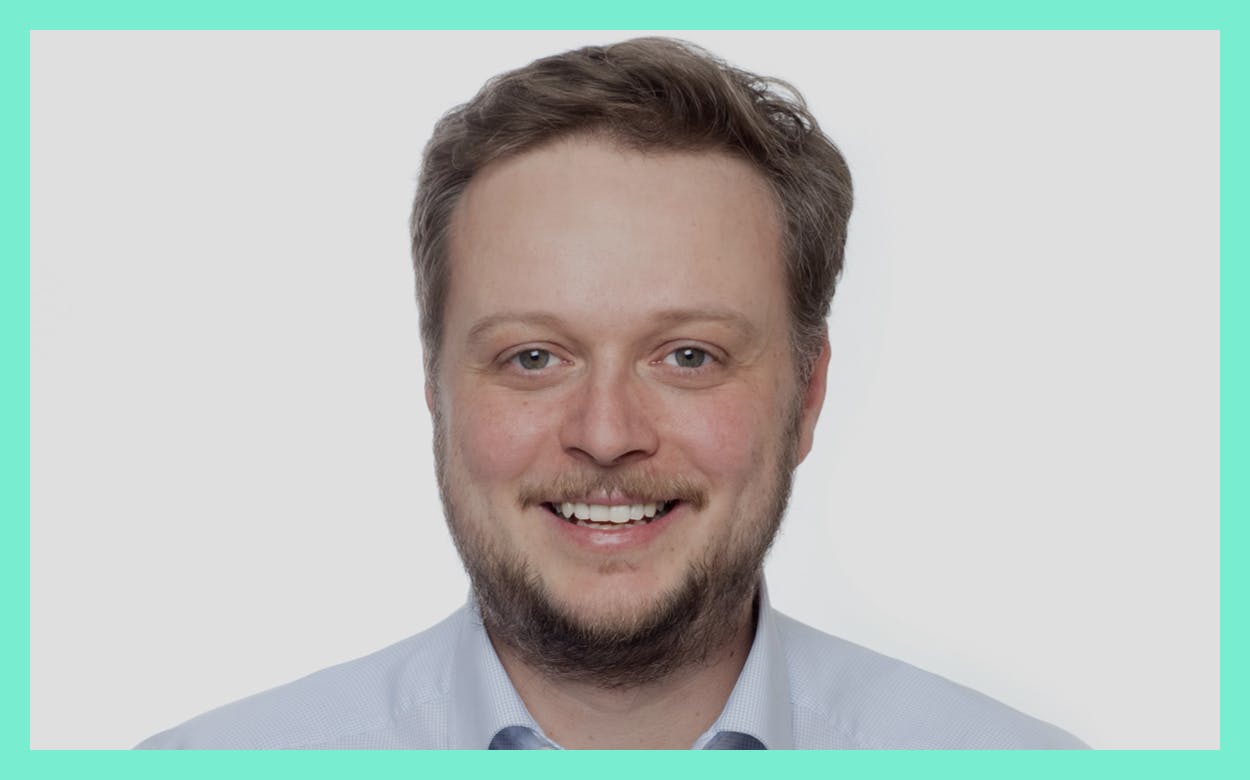Dr. Daniel Schneider (GM Germany, Kry)
Daniel Schneider is General Manager for Kry (↗) in Germany. Kry offers video consultations with German doctors to all patients in Germany, but is also present in the UK, France, Sweden, and Norway. Previously he worked for Oetker Digital, Zalando, and the Boston Consulting Group. He is a social scientist with a PhD from Stanford University.

Can you explain your job to a five year old?
Going to the doctor is never fun - wouldn't it be nice to call the doctor the same way you talk over video to your grandparents or friends? You can see the picture on your parents’ phone, the doctor can see you, you can describe what you feel, and your parents can get helpful advice on how to make you feel better soon. No more waiting in the boring doctor’s office. My team and I are working on bringing this service - talking to a doctor through the video on your phone - to Germany so that everyone can easily use it. At the same time, we are working to make this safe and easy for doctors as well.
What excites you most about your job?
Working at the frontier of digitalization is the most exciting for me - health care is one of the last areas that are only now experiencing the full thrust of digitalization. We are working on creating a better health care experience for patients - but also improving ways of working for doctors, creating more flexibility and more efficiency, and generally a less admin-heavy approach to providing health care. Health care touches everyone - everyone needs good care in times of need and guidance to stay healthy.
Which trend will change the future of medicine?
The big headline in health care digitalization for me is "patient empowerment". With all its benefits and challenges, the fact that patients have more access to information, have more choices, and can reach out to more health care providers than ever will change the dynamics between health care providers and patients dramatically. It means that patients also need to accept more responsibility in taking care of their health, while health care practitioners will improve their ability to interact with patients, enabling deliberate decisions based on the best information and acting more as a guide than as drill sergeant for patients.
Looking back, which trends have you missed or underestimated?
For most of us, the biggest catalyst of digitalization is the COVID-19 pandemic. It has shifted what people expect from their health care system, increased relevance of the topic for the public overall, and it has specifically highlighted that we are really lacking digital capabilities in Germany. However, these "black swan" events are by definition hard to predict - with hindsight we would certainly have done a few things differently, but we are all in the same boat: the pandemic has been a strong lesson for all of us in learning to react quickly to new information.
Which MedTech initiative or startup deserves more attention?
Many of the collaborative initiatives and associations in the industry deserve more attention - Bitkom, Spitzenverband Digitale Gesundheitsversorgung, Bundesverband Internetmedizin, just to mention a few important associations, are doing a tremendous job in pushing forward the digitization of healthcare for all us. No company alone can change the health care system, but jointly we can explain our arguments and convince others to progress towards better digital solutions.
Where would you put a million dollars?
I would try to find 10 projects that need the first $100,000 to get started on something that is worthwhile pursuing - whether it is in health, fighting climate change, education, or other initiatives trying to make the world a better place. The first $100.000 should open the door and attract others to put more money into the initiatives, multiplying the impact.
What’s the best advice you’ve ever received?
"Better done than perfect". Every time something is "done" and out in the wild, we learn more about what it needs to be better than we ever could have learned before. Those insights and the incremental improvements are crucial and more productive than agonizing about being perfect. Only bringing a concept into contact with reality will actually tell us whether something is "perfect".